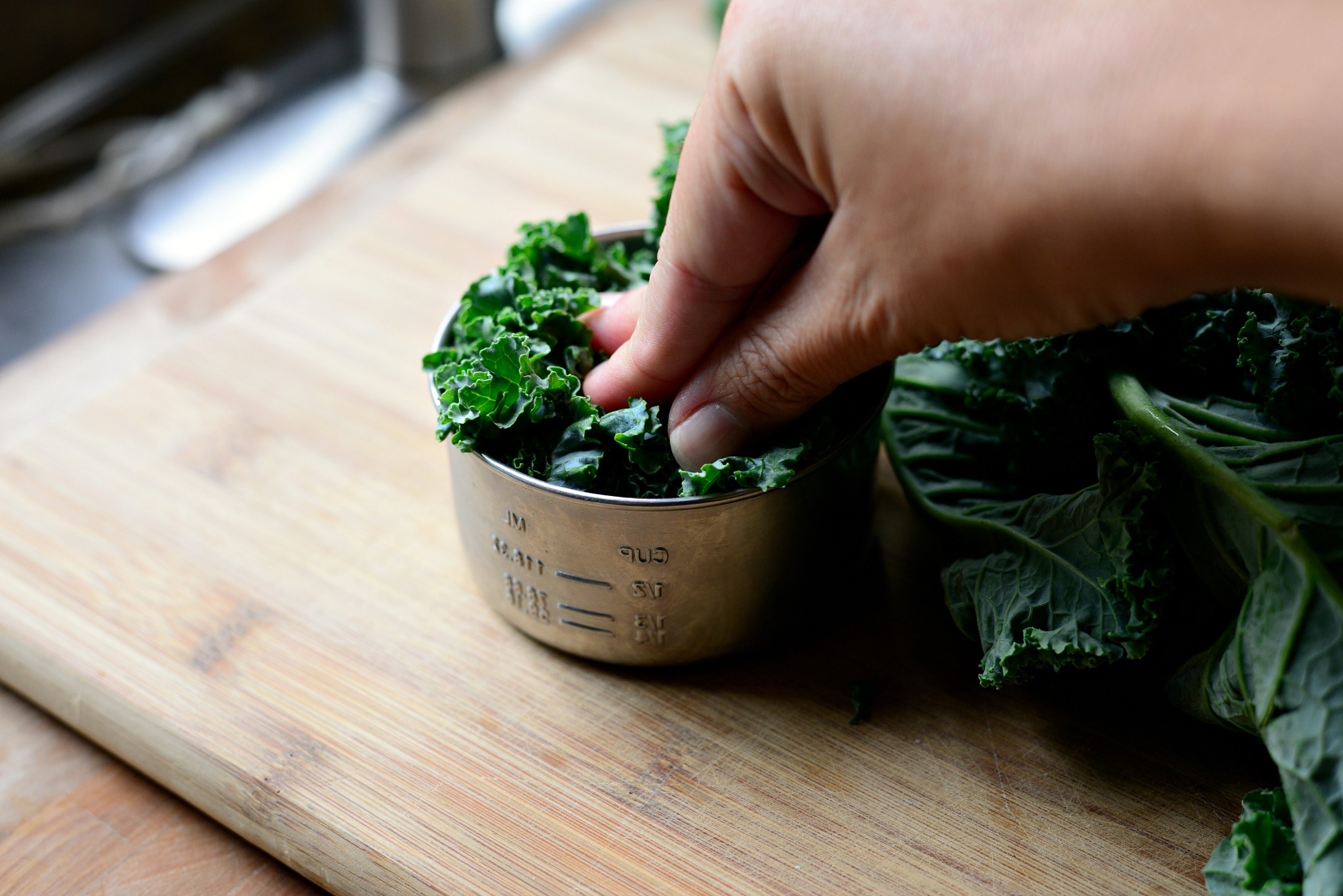
Kale has become a superstar in the world of healthy eating, but what makes this leafy green so special? One cup of kale packs a punch with its impressive nutritional profile. Did you know that kale is loaded with vitamins A, C, and K, along with essential minerals like calcium and potassium? It's also a fantastic source of fiber, which helps keep your digestive system in check. But that's not all—kale is rich in antioxidants, which can help fight off harmful free radicals in your body. Whether you're tossing it in a salad, blending it into a smoothie, or baking it into crispy chips, kale offers a myriad of health benefits that are hard to beat. Ready to learn more about why this green giant deserves a spot on your plate? Let's dive into 28 great kale nutrition facts!
Kale: The Nutrient Powerhouse
Kale, often hailed as a superfood, packs a punch when it comes to nutrition. This leafy green is loaded with vitamins, minerals, and antioxidants. Let's dive into some fascinating facts about kale's nutritional benefits.
-
Kale is low in calories but high in nutrients. One cup of raw kale contains only about 33 calories, making it a great addition to any diet without adding extra weight.
-
Rich in Vitamin K. Kale is one of the best sources of Vitamin K, which is essential for blood clotting and bone health. One cup provides nearly 7 times the daily recommended amount.
-
High in Vitamin A. This leafy green is packed with beta-carotene, which the body converts into Vitamin A. This vitamin is crucial for maintaining healthy vision and skin.
-
Loaded with Vitamin C. Kale contains more Vitamin C than an orange. One cup provides about 134% of the daily recommended intake, boosting your immune system and skin health.
-
Contains powerful antioxidants. Kale is rich in antioxidants like quercetin and kaempferol, which help combat oxidative stress and inflammation.
Kale's Mineral Content
Beyond vitamins, kale is also a great source of essential minerals. These minerals play vital roles in various bodily functions.
-
High in calcium. Kale provides more calcium per calorie than milk, making it an excellent choice for those looking to strengthen their bones.
-
Rich in potassium. Potassium helps regulate blood pressure and fluid balance. One cup of kale contains about 329 mg of potassium.
-
Contains magnesium. This mineral is important for muscle function and energy production. Kale offers a good amount of magnesium, supporting overall health.
-
Iron content. Kale is a plant-based source of iron, which is essential for transporting oxygen in the blood. This makes it a great option for vegetarians and vegans.
-
Low in oxalates. Unlike spinach, kale is low in oxalates, which can interfere with the absorption of calcium and other minerals.
Health Benefits of Kale
Kale's impressive nutrient profile translates into numerous health benefits. Here are some ways this leafy green can improve your well-being.
-
Supports heart health. The fiber, potassium, and antioxidants in kale contribute to a healthy heart by reducing cholesterol levels and blood pressure.
-
Aids in digestion. Kale is high in fiber, which promotes healthy digestion and regular bowel movements.
-
Boosts immune function. The high Vitamin C content in kale helps strengthen the immune system, protecting against illnesses.
-
Promotes healthy skin and hair. Vitamins A and C in kale support collagen production, which is essential for healthy skin and hair.
-
May reduce cancer risk. The antioxidants and compounds like sulforaphane in kale have been shown to have anti-cancer properties.
Kale in Your Diet
Incorporating kale into your diet can be both easy and delicious. Here are some tips and facts about how to enjoy this superfood.
-
Versatile in recipes. Kale can be eaten raw in salads, blended into smoothies, sautéed, or baked into chips.
-
Pairs well with other foods. Kale's slightly bitter taste complements sweet fruits, nuts, and cheeses, making it a versatile ingredient.
-
Easy to grow. Kale is a hardy plant that can be grown in various climates, making it accessible for home gardeners.
-
Available year-round. This leafy green is typically available in grocery stores throughout the year, ensuring a constant supply.
-
Different varieties. There are several types of kale, including curly kale, dinosaur kale, and red Russian kale, each with its unique flavor and texture.
Fun Facts About Kale
Kale has an interesting history and some surprising uses beyond the kitchen. Here are a few fun facts to round out your knowledge.
-
Ancient origins. Kale has been cultivated for over 2,000 years and was a staple in the diets of ancient Greeks and Romans.
-
Used as decoration. In the 1990s, kale was often used as a garnish in salad bars rather than being eaten.
-
National Kale Day. Celebrated on the first Wednesday of October, this day promotes the health benefits of kale.
-
Kale in space. NASA has considered kale as a potential crop for long-term space missions due to its nutrient density.
-
Kale popularity. Kale's popularity surged in the early 2010s, partly due to celebrity endorsements and health trends.
-
Kale chips. Baking kale into chips is a popular way to enjoy this vegetable as a healthy snack.
-
Kale smoothies. Blending kale into smoothies is an easy way to boost your nutrient intake without altering the flavor significantly.
-
Kale festivals. Some towns host festivals dedicated to kale, celebrating its culinary and health benefits.
Kale: A Nutritional Powerhouse
Kale packs a punch when it comes to nutrition. One cup of this leafy green offers a wealth of vitamins, minerals, and antioxidants. It's loaded with vitamin K, vitamin C, and vitamin A, which support bone health, immune function, and vision. The fiber in kale aids digestion and helps maintain a healthy gut. Plus, its low-calorie count makes it a great addition to any diet.
Eating kale can also help reduce inflammation and lower cholesterol levels. Its high antioxidant content fights oxidative stress, potentially lowering the risk of chronic diseases. Whether you toss it in a salad, blend it in a smoothie, or bake it into chips, kale is versatile and easy to incorporate into meals.
So, next time you're at the grocery store, grab some kale. Your body will thank you for the nutrient boost!
Was this page helpful?
Our commitment to delivering trustworthy and engaging content is at the heart of what we do. Each fact on our site is contributed by real users like you, bringing a wealth of diverse insights and information. To ensure the highest standards of accuracy and reliability, our dedicated editors meticulously review each submission. This process guarantees that the facts we share are not only fascinating but also credible. Trust in our commitment to quality and authenticity as you explore and learn with us.


